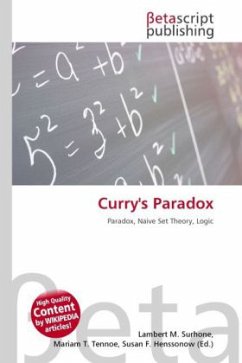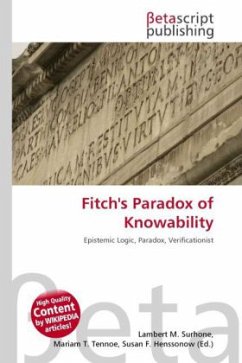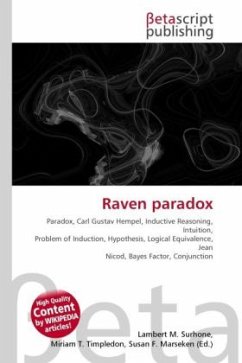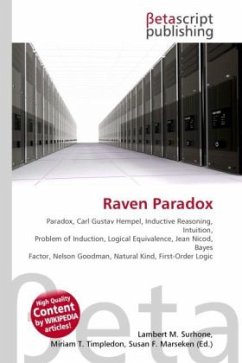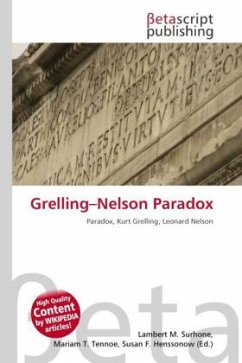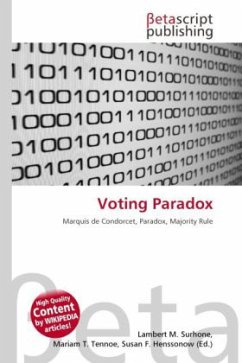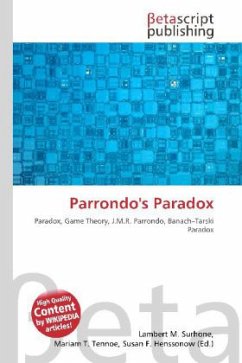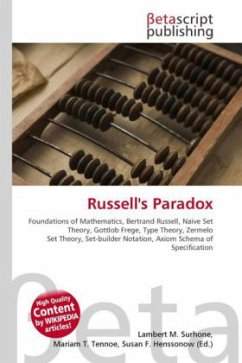High Quality Content by WIKIPEDIA articles! Curry's paradox is a paradox that occurs in naive set theory or naive logics, and allows the derivation of an arbitrary sentence from a self-referring sentence and some apparently innocuous logical deduction rules. It is named after the logician Haskell Curry. It has also been called Löb's paradox after Martin Hugo Löb. Claims of the form "if A, then B" are called conditional claims. It is not necessary to believe the conclusion (B) to accept the conditional claim (if A, then B) as true.
Bitte wählen Sie Ihr Anliegen aus.
Rechnungen
Retourenschein anfordern
Bestellstatus
Storno

